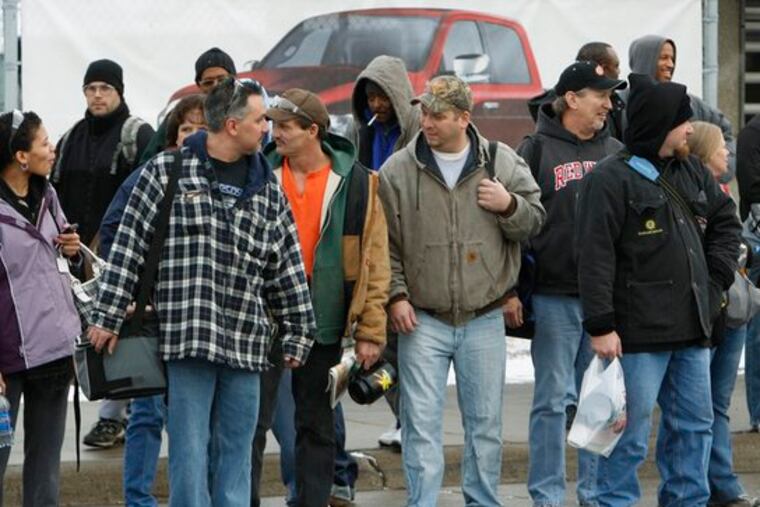Next step in auto bailout undecided
Congress failed to approve help. The White House could act, but Bush said he was not ready to announce anything yet.

WASHINGTON - The White House tossed out no lifeline for the teetering auto industry yesterday, although President Bush reiterated that he was considering using money from the $700 billion financial bailout fund to provide loans to the carmakers.
"An abrupt bankruptcy for autos could be devastating for the economy," Bush told reporters today aboard Air Force One during an unannounced trip to Iraq and Afghanistan. "We're now in the process of working with the stakeholders on a way forward. We're not quite ready to announce that yet."
Bush wouldn't give a precise timetable but said: "This will not be a long process because of the economic fragility of the autos."
The administration is considering ways to provide emergency aid to General Motors Corp. and Chrysler L.L.C., which have said they could run out of cash within weeks without federal aid.
Sen. Bob Corker of Tennessee, a Republican who blocked $14 billion in auto-industry loans last week, said he spoke with the White House early yesterday. "I don't think they yet know what they're going to do," he said.
Ron Gettelfinger, president of the United Auto Workers, said the union had not held discussions with the White House.
The aid is expected to benefit General Motors and Chrysler, and discussions involve the amount of funding and any potential conditions. Ford Motor Co. has said it has enough cash to survive 2009 but asked Congress for a line of credit in case financial markets deteriorate.
"I'm optimistic they're going to do something significant. I don't think the White House wants bankruptcy at one of the Big Three automakers as part their legacy," said Sen. Sherrod Brown (D., Ohio).
Last week, Congress failed to approve $14 billion in loans to help the automakers. The plan would have provided short-term financing to the industry and create a "car czar" who would ensure that the money would transform the Detroit automakers into competitive companies.
The administration, following the legislative defeat, said it was considering several options, including using money from the $700 billion financial bailout fund to provide loans to the carmakers.
Corker and other Republicans sought a compromise that would have insisted the carmakers restructure their debt and bring wages and benefits in line with those paid by Toyota, Honda and Nissan in the United States. The legislation died when Republicans demanded upfront pay and benefit concessions from the United Auto Workers that union leaders rejected.
Corker urged the White House to seek similar concessions from the auto companies and their unions in return for the money. "Of course, the benefit they have - they don't have to negotiate. They can say this money is available but it's only available under these conditions," he said.
Sen. Debbie Stabenow (D., Mich.) countered that Republican leaders in the Senate did not want an agreement and the loans were needed to buy time for the companies to restructure.
"Manufacturing is on the edge in this country. This is not the time for a political agenda," Stabenow said.
The UAW's Gettelfinger said the failure of the legislation showed that Congress should stay "away from the bargaining table."
The administration has several options. It could tap the $700 billion financial rescue bailout fund to provide loans to the carmakers or use part of that fund as a kind of collateral for emergency loans the automakers could get from the Federal Reserve.
The administration also could do nothing, leaving open the possibility that one or more of the automakers could go bankrupt.
Corker was on CBS's
Face the Nation
, as was Brown, and
Fox News Sunday
, where he appeared with Stabenow. Gettelfinger was on CNN's
Late Edition
.